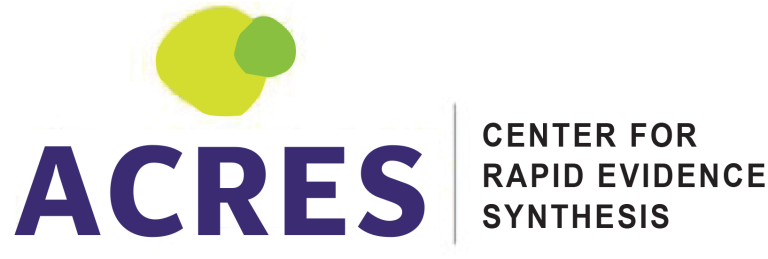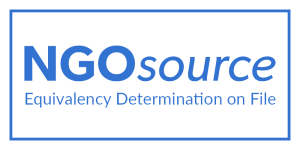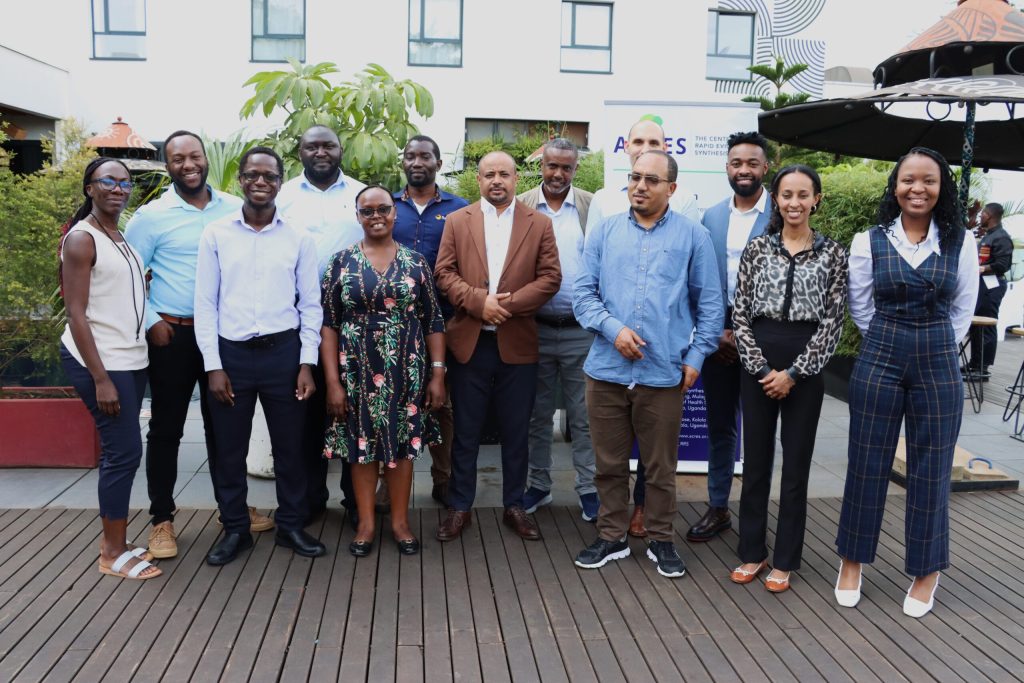 Partners in the implementation of the DG Tools project pose for a group photo following a meeting in Kampala
Partners in the implementation of the DG Tools project pose for a group photo following a meeting in Kampala
The Digital Gender Inclusive Tools for Evidence Use (DG – Tools) meeting, held from October 14th to 16th, 2024, in Kampala, Uganda brought together experts from ACRES, EPHI, and PACE to discuss the latest advancements in digital tools for Evidence-Informed Decision Making (EIDM) in the gender space. The meeting focused on leveraging technology to streamline evidence synthesis, enhance collaboration, and ultimately improve the lives of people.
Dr. Ismael Kawooya, Head of Office at ACRES, set the tone for the meeting by emphasizing the pivotal role of digital technologies in optimizing EIDM processes. Dr. Ismael noted that by harnessing the power of digital tools, researchers and policymakers in the gender equality arena can accelerate evidence synthesis, strengthen collaborations, and scale up evidence-based interventions.
The meeting delved into the DG – Tools Impact Pathways framework, which outlines the interconnectedness of inputs, activities, outputs, and outcomes in achieving desired impacts. Participants engaged in a collaborative session to identify specific outcomes, outputs, activities, and inputs that align with the project’s goals.
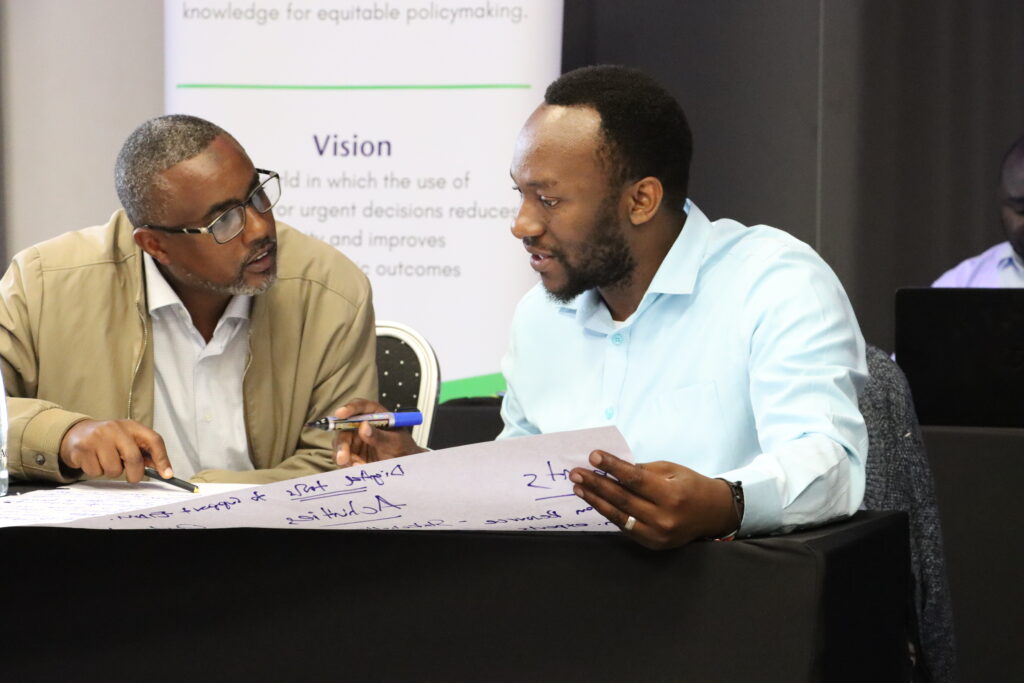
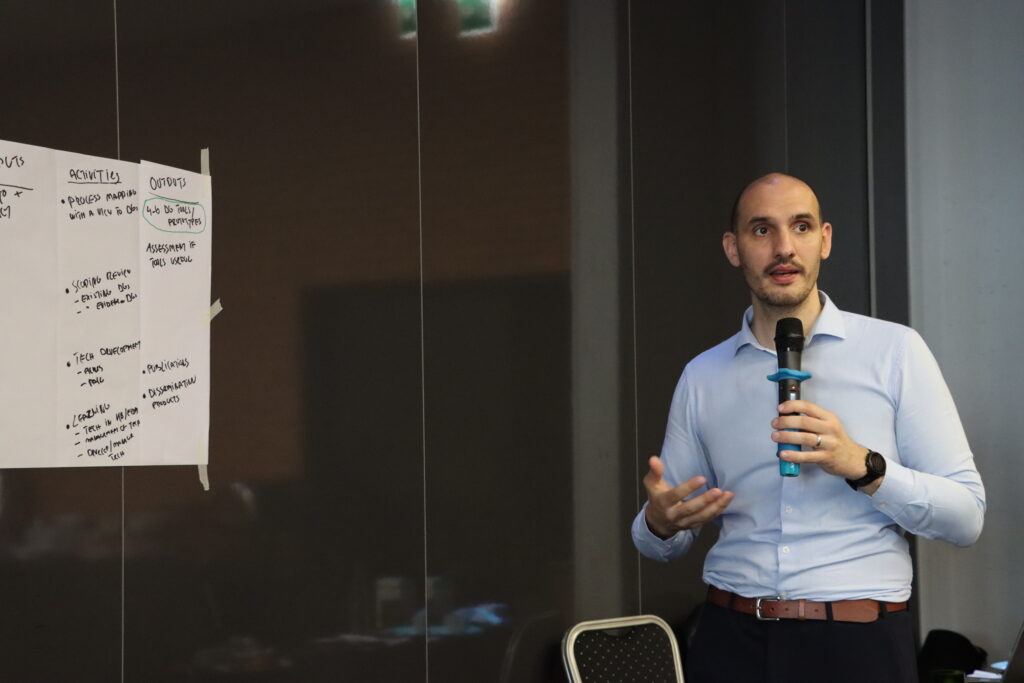
Leveraging Digital Tools for EIDM
The discussion extended to the practical application of digital tools in EIDM. Participants explored various tools and techniques to enhance communication, knowledge sharing, and collaboration. A key focus was on crafting impactful communication campaigns and fostering ongoing engagement to maximize the project’s impact.
A Q&A session addressed critical questions, such as the frequency of data collection, the role of stakeholder engagement, and the integration of gender, equity, and inclusivity principles into project activities.
Team Updates and Future Direction
Representatives from PACE, EPHI, and ACRES presented updates on their respective projects.
PACE highlighted their progress in developing the ChatEIDM tool, which aims to provide policymakers with evidence-based answers to their questions to achieve gender equality.
EPHI shared insights from their scoping review of digital tools in Africa and South Africa, identifying gaps and opportunities for improvement.
EPHI presented key findings from their comprehensive scoping review of digital tools in Africa and South Africa, highlighting existing gaps in digital infrastructure and utilization, emerging opportunities for innovation and scale as well as critical areas for improvement to enhance effectiveness of policies.
Meanwhile, ACRES showcased their innovative Rapid Response Service (RRS) tool, powered by Retrieval-Augmented Generation (RAG) technology. This tool, jointly developed with Sunbird AI, significantly reduces the time required to synthesize evidence, enabling timely and evidence-based decision-making.
The meeting discussed the future of EIDM and the role of digital tools. Participants emphasized the need for continued collaboration, innovation, and capacity building to ensure that digital tools are effectively utilized to address pressing global challenges.
